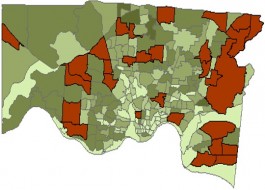Announcing a new summer workshop!
Big Data Training for Translational Omics Research
Purdue University is pleased to announce the first Annual NIH-funded workshop on “Big data training
for translational omics research” in West Lafayette, IN on July 11 – 22, 2016. The two-week workshop will focus on providing biomedical researchers inexperienced in biomedical big data science with entry level training in big data science. The format of the workshop includes a series of problem-based activities to build familiarity and basic competency with established tools and publically available resources. These activities will be complemented by formal lectures on various topics important for big data science. The course is open to faculty, post-doctoral researchers, and graduate students.
The costs of tuition, room, and board are covered for accepted applicants!
For additional information and the online application please visit:
http://www.stat.purdue.edu/bigtap/index.html
Application reviews will begin on April 11, 2016.
Please distribute this e-mail and the attached flyer to anyone you think might benefit from attending.

